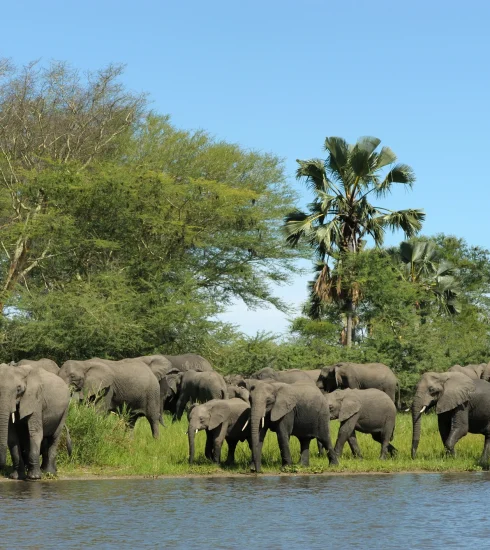Safari Planning 101: 7 Important Considerations for a Memorable Trip
Embarking on a safari adventure is an exciting and unforgettable experience. The stunning wildlife, breathtaking landscapes, and unique cultural encounters make it a dream vacation for many. However, to ensure a truly remarkable safari, careful planning and preparation are essential. STYLEAFRIQUE™•com explores some important considerations that will help you create an unforgettable safari trip.
1. Choose the Right Destination

Selecting the right safari destination is crucial. Africa offers a wide array of options, each with its own unique attractions. Research the different countries and national parks to find the one that aligns with your interests and preferences. Whether you’re seeking the awe-inspiring migration in the Serengeti, the majestic Victoria Falls in Zimbabwe, or the captivating wildlife in Kruger National Park, understanding the highlights of each destination will aid in making an informed decision.
2. Determine the Ideal Time to Visit
Timing is everything when it comes to safaris. Consider the seasonal variations and wildlife migrations in your chosen destination. The dry season is often recommended for optimal game viewing as animals gather around water sources, making them easier to spot. However, some parks may offer unique experiences during the wet season, such as the birth of young animals or lush green landscapes. Balancing your preferences with the best wildlife-viewing opportunities will greatly enhance your safari experience.
3. Select Accommodations Wisely

Choosing the right accommodations is essential for comfort and convenience during your safari. The options range from luxury lodges to tented camps, each providing a different level of immersion in the wilderness. Consider factors such as location, proximity to wildlife-rich areas, amenities, and the type of experience you seek. While luxurious lodges provide comfort, tented camps offer a more authentic safari experience, allowing you to be closer to nature and its incredible sights and sounds.
4. Research Safari Activities

Research the safari activities available at your chosen destination. Game drives are a staple of most safaris, providing the opportunity to see wildlife up close in their natural habitat. However, some parks offer additional activities such as walking safaris, hot air balloon rides, or boat safaris. Understanding the options will enable you to tailor your itinerary to suit your interests and maximize your wildlife encounters.
5. Pack Appropriately
Packing appropriately is essential for a comfortable and enjoyable safari. Depending on your destination and the time of year, you may need lightweight, breathable clothing for hot days, as well as warmer layers for cooler mornings and evenings. Don’t forget essentials like sunscreen, insect repellent, a wide-brimmed hat, sturdy walking shoes, and a good pair of binoculars for wildlife spotting. It’s also important to check the baggage restrictions of your chosen airline and the specific requirements of your safari operator.
6. Prioritize Safety
Safety should always be a top priority on a safari. Follow the instructions of your experienced guides and adhere to the park regulations. Keep a safe distance from wildlife and never attempt to feed or touch them. Be aware of potential health risks and ensure you have the necessary vaccinations and medications recommended for the region. Travel insurance is also crucial to protect against any unforeseen circumstances.
7. Embrace Cultural Experiences

Safaris offer a unique opportunity to immerse yourself in diverse cultures. Engage with local communities, visit cultural sites, and learn about their customs and traditions. This enriching experience will add depth to your safari journey and create a deeper appreciation for the natural and cultural heritage of the region.







